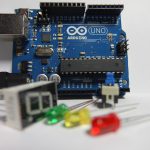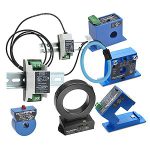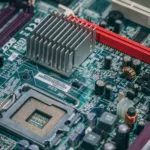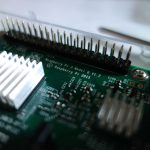
Introduction
The integration of single-board computers (SBCs)––a cornerstone technology––has revolutionised the way industries operate, manage, and control industrial processes. These compact, versatile devices offer a myriad of benefits, from streamlining operations to enhancing system reliability. Our handy article will walk you through the pivotal role of SBCs in industrial automation, highlighting their potential advantages, significance, examples, and versatile applications.
Introduction to Single-Board Computers
As the name suggests, single-board computers are fully functional computers that feature all the necessary features on a single circuit board. These units integrate a microprocessor, memory, input/output (I/O) ports, connectivity features, and other features necessary for a functional computer. Originally designed for educational purposes, their robustness, compact form factor, and cost-effectiveness have broadened their use across various sectors, particularly in industrial automation.
The Need for Enhanced Industrial Automation – Empowering Industries
Enhanced industrial automation represents a crucial progression in manufacturing and production processes, offering significant benefits that can help companies stay competitive. Various factors, such as greater efficiency, safety, productivity, and cost reduction, drive the rising need for enhanced industrial automation. Automation streamlines processes and reduces human errors, producing high-quality output. Furthermore, companies that embrace automation gain a competitive edge by being able to deliver goods or services more efficiently and cost-effectively. Additionally, automated systems are often easier to scale up or down to meet the changing demands of production. This scalability provides flexibility for businesses to adapt to fluctuations in market conditions without significant disruptions.
Industrial Single-Board Computers: Differences from Consumer-Grade SBCs
Industrial SBCs are compact, rugged computing platforms specifically designed to operate reliably in challenging industrial settings. These computers are particularly suited for applications where reliability and durability are critical in industrial operations. Industrial SBCs differ from consumer-grade SBCs in terms of robust reliability, expandability, connectivity, customisation options, ease of use, and applications. Additionally, consumer-grade SBCs are widely used for education, general-purpose computing, and hobbyist projects and are more affordable.
Benefits of Using SBCs in Industrial Automation
SBCs offer unmatchable benefits when used in industrial automation, such as:
- Compact Size and Integration Convenience: SBCs are compact units that integrate all necessary computer functions on a single circuit board. This small form factor is ideal for industrial environments where space is at a premium. SBCs typically come with multiple connectivity options, such as USB, Ethernet, GPIO, and serial ports, facilitating seamless integration with existing industrial equipment and communication protocols.
- Low Power Consumption: Many SBCs are designed to consume low power and generate less heat, reducing the need for extensive cooling systems.
- Cost-Effective: Compared to traditional PLCs (Programmable Logic Controllers) or larger industrial PCs, SBCs are generally more affordable. This cost advantage allows businesses to deploy advanced computing solutions without a significant financial burden, making automation accessible to smaller enterprises as well.
- Enhanced Connectivity: Modern SBCs feature multiple connectivity options, including Ethernet, Wi-Fi, Bluetooth, and USB ports. These multi-connectivity options drive them to easily integrate with other systems or devices within the industrial network, facilitating better data communication and interoperability.
- Reduced Development Time: Many SBCs come with pre-loaded software and development tools, which can significantly reduce the time and effort needed to develop and deploy automation solutions. This is particularly beneficial in rapidly changing industries where time to market is critical.
- Security Features: Industrial SBCs often have built-in security features that help safeguard sensitive data and prevent unauthorised access to industrial systems.
- Flexibility and Scalability: With SBCs, it’s easier to scale up or down multiple systems based on changing requirements. They support various operating systems and can be programmed for numerous tasks, from simple machine control to complex data processing and AI applications. This flexibility ensures that industrial automation systems can evolve with technological advancements and business needs.
Examples of Popular SBCs in Industrial Automation
SBCs come in various types, which are chosen according to the particular requirements of the industrial automation tasks. Some of the popular SBCs used in industrial settings include:
- Raspberry Pi – While traditionally used for educational and hobbyist projects, the Raspberry Pi has found a niche in industrial applications due to its robust community, ease of programming, and availability of industrial-grade accessories. It’s often used for data collection, process monitoring, and as a gateway for IoT devices.
- Arduino – Although more commonly associated with DIY electronics, Arduino boards are used in industrial automation for prototyping, small-scale control systems, and testing new concepts or processes due to their simplicity and extensive shield (module) ecosystem.
- BeagleBone Black – This SBC is known for its open-source hardware design, which makes it highly customisable for specific industrial needs. It features good connectivity options and real-time processing capabilities, which are crucial for control applications in industrial automation.
- ODROID – Known for their powerful processing capabilities, ODROID boards are used in more demanding industrial applications that require significant computing power, such as image processing, complex data analysis, or multi-task control systems.
- PICO-PI-IMX8M – This SBC is designed specifically for industrial applications, offering a robust build, extended operating temperature ranges, and support for industrial communication protocols. It’s suitable for IoT applications, edge computing tasks, and as part of more complex machine control systems.
Broad Range Applications of Single-Board Computers
Single-board computers find versatile applications across diverse fields, including but not limited to:
- Education and Learning
- IoT and Smart Devices
- Media Centers
- Robotics
- Networking Equipment
- Development Platforms
- Art and Digital Installations
- Healthcare Devices
- Commercial Product Prototyping
- Environmental Monitoring.
Final Thoughts
Single-board computers are becoming a cornerstone of modern industrial automation, offering a blend of benefits in terms of cost-efficiency, versatility, and compact design. As industries continue to embrace automation, the role of SBCs is set to grow, driving innovations and efficiency in manufacturing and beyond. With a wide variety of advanced types available, integrating SBCs into industrial systems represents a strategic move towards smarter, more connected, and more efficient operations.





















